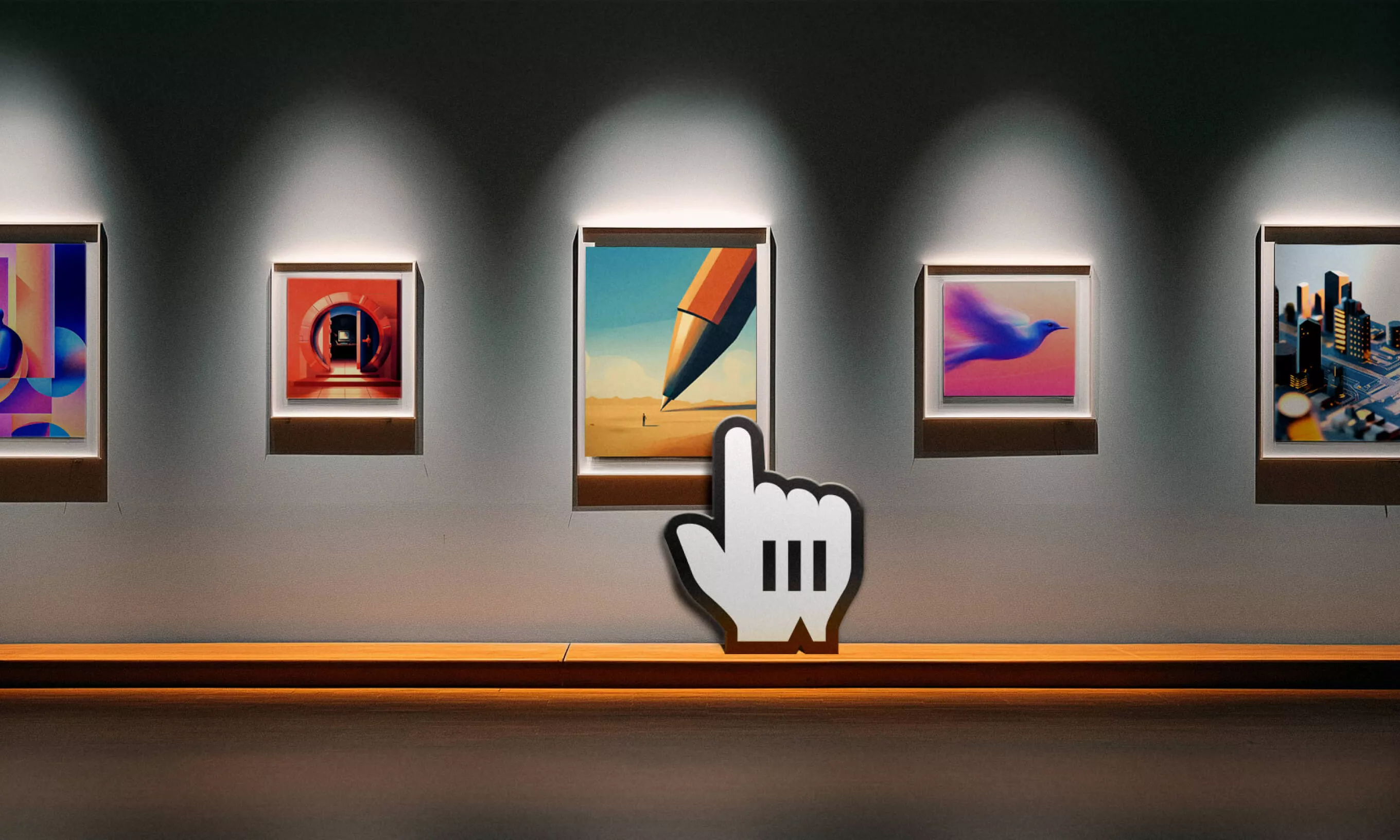While the Beatles blazed a trail to global fame, the Rolling Stones followed close behind, turning setbacks into strategic advantages. Author Rich Cohen uncovers the surprising business insights hidden in their competition.
The road to success in business is riddled with setbacks. Your software crashes, systems are hacked, products get lost in the cargo hanger, delayed by traffic, caught up in a strike, or end up addressing a need that no longer exists. You get knocked down? You get up and go again, as both Joe Biden and Mike Ditka advise. You fail better, then move on, sharpened by experience.
To anyone involved in a creative endeavor, which is everyone with an idea, the particularly paralyzing setback arrives with some version of the phrase: “Somebody is already doing that” (making that, selling that, singing that…). For whatever reason, new ideas seem to arise in not one but several minds at the same time. In twos or threes they come, like stunt riders at the rodeo. Genius is less invention than reception. The revolutionary idea is not created but received. It’s a signal tuned in from an offshore pirate radio station.
It happened in the 1600s, when Isaac Newton and Gottfried Leibniz discovered calculus almost simultaneously, in the 1700s, when Carl Wilhelm Scheele and Joseph Priestley discovered oxygen at nearly the same moment. It happened with Natural Selection in the 1800s, with radio in 1920s, with TV in the 1950s, with the microchip in the 1960s.
Being told your invention or discovery has already been invented or discovered can be utterly deflating, the sort of development that causes you to burn your notebooks and seek out the nearest monastery. But this response is wrong. In case after case, reaching the market second has proven not only survivable but preferable. In hockey, it’s often the trailer, the forward who arrives late to the play, who scores. At NASA, it was the second group of astronauts, those who did not make the cut for the Mercury program, who actually got to walk on the moon.
How being second paid off for the Rolling Stones
Take the example of the Rolling Stones. Brian Jones, Mick Jagger, Keith Richards, Bill Wyman, Charlie Watts. The band, formed in the underground dives of post-war London, was designed as a hybrid, a way to turn something great but obscure (Chicago blues) into something new and sales-worthy (rock ’n’ roll).
In 1962, when not playing shows, the Stones met in their shabby walk-up at 102 Edith Grove in Chelsea to reverse-engineer and remake tunes by Chuck Berry and the Everly Brothers. In October, just months from finding their sound, Brian Jones, who founded the Stones, bounded up the stairs with a new record.
“Listen to this!”
Everyone gathered around, their young, handsomely ugly mugs staring at the spinning red Parlophone label with silver letters and silver words: “Love Me Do.” It was the first Beatles single, a song that was soon blasting from every radio and open door in Britain. The Stones had never heard of the Beatles, a band following a parallel trajectory in Liverpool, which, as far as Jones and Jagger were concerned, was the sticks. The Stones’ initial reaction – Listen to the harmonica! The harmonies! These guys are great! – gave way to despondency. Might as well hang it up. They’ve already done it.
But, seeing as nothing else awaited them but careers in business or advertising, they did not quit, and persisted instead. With time, it’s become clear that the Stones’ bad luck was good luck. That arriving second would serve the Stones in many ways. It’s a lesson for all those who, beaten to market, might be on the verge of quitting.
Here are five ways that coming in second helped the Rolling Stones.
1. The Beatles proved there was a market
The pop charts were dominated by crooners and bubble gum acts when the Beatles arrived. Hardcore electric guitar bands, the amped-up blues, were thought to have no audience beyond aficionados. The Beatles had already been rejected by half a dozen record companies when George Martin, a producer at a small label called Parlophone, took a flyer on the band.
“Love Me Do,” which reached number 17 on the UK charts and topped the U.S. charts in the spring of 1963, put all the record men who’d turned down the Beatles to shame. This success and failure – success for the band, failure for the execs – remade the landscape for the Stones, who found themselves auditioning for producers who now knew there was a market, and did not want to blow it a second time.
By getting bested by the Beatles, the Stones arrived at a market that had been remade – terraformed – for their success.
When Dick Rowe signed the Stones to Decca in May 1963, he did it partly because he’d rejected the Beatles – a fact that would appear, as he feared, in the first graph of his obituary. He feared being known as the man who turned down both the Beatles and the Rolling Stones. By getting bested by the Beatles, the Stones arrived at a market that had been remade – terraformed – for their success.
2. The Beatles gave the Stones something to define themselves against
Because many of their influences were Black artists who could not get time on white radio and played the kind of songs that got kids dancing close, Brian Epstein, who managed the Beatles, worked hard to sell the group as clean-cut and unthreatening. Hence the matching haircuts and suits. Hence the bubblegum interviews with fan magazines. Hence the radio-safe lyrics: “Love me do.” “I want to hold your hand.” “She loves you yeah yeah yeah.”
When Bob Dylan told the Beatles he assumed their first single contained a coded reference to reefer (“I get high, I get high, I get high”), John Lennon was dumbfounded. Dylan rolled them a joint in response, changing the world.
Because they’d arrived on a scene already dominated by the Beatles, Andrew Loog Oldham, the PR man who managed the Stones, was able to market them as a kind of anti-Beatles. They’re clean, we’re dirty. They’re safe, we’re dangerous. As Keith put it, “The Beatles were wearing the white hats when we arrived. That left us the black hats.”
Oldham arranged PR stunts accordingly: he got the Stones kicked out of hotels and restaurants, making sure the press was there to cover the brouhaha. He encouraged lascivious lyrics: “Let’s Spend the Night Together;” “Can’t Get No Satisfaction.” He designed ads that showed the unkempt band members over the question: “Would you let your daughter marry a Rolling Stone?” By staking such a clear squeaky-clean identity, the Beatles had opened a niche in the market for the Stones.
3. The Beatles served as windbreak for the Stones
The Beatles arrived in New York on February 7, 1964. John Kennedy had been assassinated just three months before. December, January… those had been dark, brutal days. America was in mourning. Millions of people, especially the kids, were aching for a change. Though they arrived in advance of spring, the coming of the Beatles did indeed feel like a change of season. People grew obsessed with the band and the new life they seemed to represent. (“And now,” to quote Monty Python, “for something completely different.”)
Arriving second can mean slipping the curse of too much attention – another gift the Beatles afforded the Stones.
The Beatles were soon the object of a frightening hysteria. It was, in many ways, too much of a good thing. It would’ve crushed most people to powder. The Beatles were able to survive, though not unchanged. The Stones, as well as the other members of the so-called British music invasion, were afforded the luxury of riding into America behind the Beatles, who took the brunt. Arriving second can mean slipping the curse of too much attention – another gift the Beatles afforded the Stones.
4. The Beatles gave the Stones something to overcome
Competition is good. Being late to the market can be seen as a setback, but it can also be accepted as a gift. Setbacks are merely obstacles. In working to overcome them, you get stronger. How do we know that Muhammed Ali was the greatest heavyweight boxer of all time? Because he was gifted with great fighters to overcome: Sonny Liston, Joe Frazier, George Forman. Unbeatable as he seemed, we will never really know where to rate the pre-Don-King Mike Tyson – because he had no true rivals, no one worthy to struggle against, no way to be valued. In other words, without Joe Frazier, Muhammed Ali would not be Muhammed Ali.
It was just like that with the Beatles and the Stones. Brian and Mick cursed when they heard “Love Me Do,” but they should have been counting their blessings. By being out front for years, blazing the path and topping the charts, the Beatles gave the Stones a path and a target. By the time Beatles split up in 1974, the Stones, having sharpened their image and sound against the whetstone of the Beatles, were ready to become the world’s greatest rock band.
5. The success of the Beatles meant the Stones always had company
Nothing can prepare a person for the pop-star level of fame. It can twist your mind and drive you mental. To be turned into a living deity is to be separated from everything and everyone you have ever known and loved. It’s the ultimate mind f—. Don’t believe me? Just look at the long list of rock star casualties. Jimi Hendrix. Janis Joplin. Jim Morrison. Kurt Cobain and Amy Winehouse as more recent examples. Almost all of them had been in search of a narcotic escape.
Worst off are those who have to ford that river alone, the classic example being Elvis. Why did the King wear jumpsuits festooned with piping and jewels? Why did he retreat to the velvet half-light of Vegas? Because he’d come to believe he was in fact a Sun God. Because he’d gone mad. Fame like that is a roller coaster that civilians can’t imagine. For the uber famous, no relationship can be trusted: what does he really want from me? Why is this person calling himself my friend? Hence the paranoia of the rock star.
The Stones had internal rivalries, which breeds its own kind of paranoia, and so had to reach out to the members of the other band for sympathy and advice. The Beatles knew exactly what the Stones were experiencing. That’s why Jagger and Lennon hung out in New York. When your life is utterly strange, it’s good to know people who have been through it.
Reframe a setback as lucky break
All to say, when you experience what seems like a misfortune – getting beat to market, say – sit back and wait. You need only look to the story of Apple, whose late-mover perfectionist philosophy is well documented, to see how beneficial this approach can be. (See: PC graphical interface, the mouse, iPod, iPhone, Apple Watch…). It might turn out to be your luckiest break.
Whether you’re pioneering or fast-following, we’d love to help you bring your most important digital visions to life. Get in touch to see how we can do that.
Rich Cohen is the author of several New York Times bestsellers, a co-creator of the HBO series Vinyl, an Editor at Large at Air Mail, and a columnist at the Wall Street Journal. He has written for Rolling Stone, The New Yorker, The Atlantic, and Harper’s Magazine, among other publications. Most recently, Rich is the author of When the Game Was War: the NBAs Greatest Season. This article is part of our Beatles vs. Stones series, which also includes The Beatles, Stones, and the Algorithm and What Business Leaders Can Learn from the Beatles vs. Stones.











